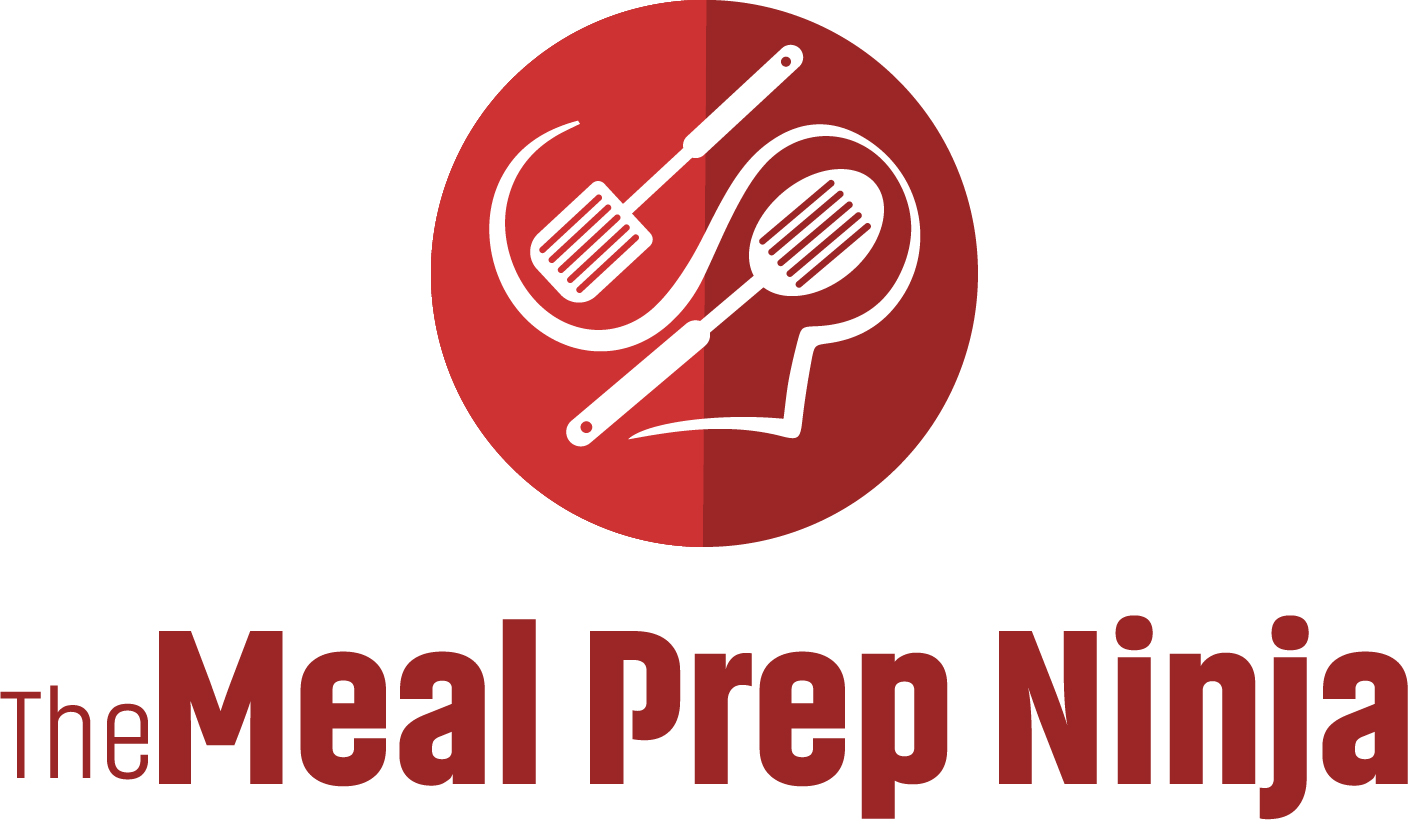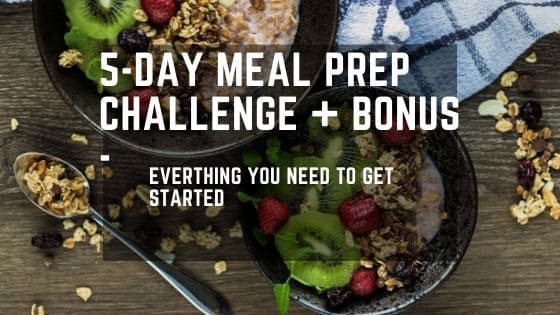Last Updated on February 14, 2024 by TheMealPrepNinja
Did you know that meal prepping can be an effective strategy for gaining weight? It’s true! By planning and preparing your meals in advance, you can ensure that you’re getting the right nutrients and calories to support your weight gain goals.
Whether you’re looking to build muscle or simply increase your overall body weight, meal prep can be a game-changer.
In this article, I will share easy meal prep ideas specifically designed for weight gain. I’ll guide you through the basics of weight gain and nutrition, offer tips for strategic meal planning, help you gear up your kitchen for meal prep success, and provide high-calorie recipes to fuel your weight gain journey. Get ready to take control of your nutrition, save time, and achieve your weight gain goals through the power of meal prep!
This post may contain affiliate links, which means we may receive a commission, at no extra cost to you, if you purchase through a link.
Key Takeaways:
- Meal prepping can be an effective strategy for gaining weight.
- By planning and preparing your meals in advance, you can ensure you’re getting the right nutrients and calories for weight gain.
- This article will provide easy meal prep ideas, tips for strategic meal planning, kitchen essentials, and high-calorie recipes to support your weight gain goals.
- Meal prep can save you time, help you stay on track with your nutrition, and make it easier to achieve your weight gain goals.
- With the right approach, meal prepping can be enjoyable and sustainable on your weight gain journey.
Understanding the Basics of Weight Gain and Nutrition
In this section, I will discuss the fundamentals of weight gain and nutrition. It’s important to have a clear understanding of these concepts in order to effectively achieve your weight gain goals.
Caloric Surplus: Key to Effective Weight Gain
A caloric surplus is the foundation for successful weight gain. To put it simply, you need to consume more calories than your body burns in a day. This excess energy allows your body to build muscle and gain weight. However, it’s crucial to strike the right balance and avoid excessive weight gain, which can lead to unwanted fat accumulation.
The Role of Macronutrients in Muscle Gain
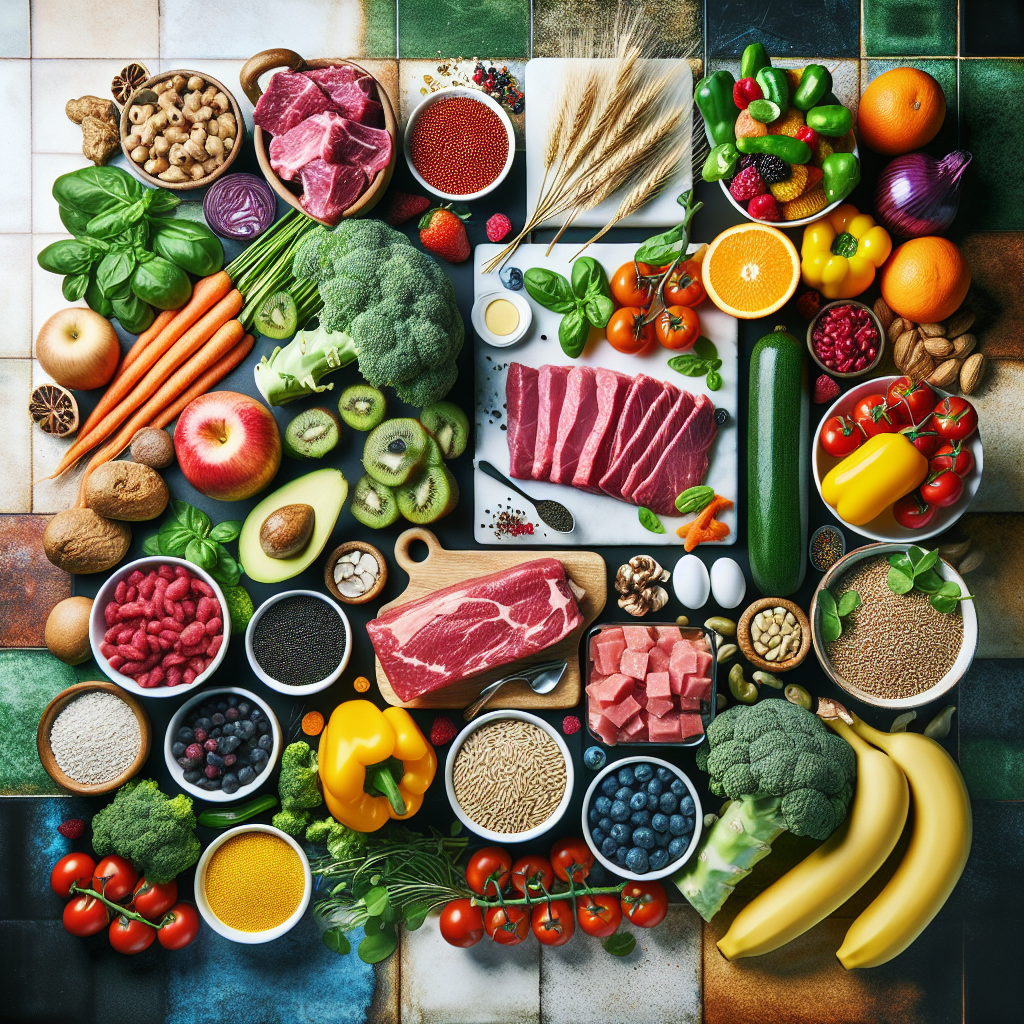
Macronutrients, consisting of protein, carbohydrates, and fats, play vital roles in muscle gain and overall nutrition. Protein is essential for muscle repair and growth, while carbohydrates provide energy for intense workouts and replenish glycogen stores. Fats support hormone production and absorb fat-soluble vitamins. Balancing these macronutrients is crucial for optimal muscle gain and overall health.
Configuring Your Calorie and Macro Requirements
Configuring your calorie and macro requirements is an important step in your weight gain journey. Determining your ideal caloric intake and macro breakdown will depend on factors such as your current weight, activity level, and goals. Consulting with a registered dietitian or using online calculators can help you determine the right balance of calories and macronutrients for your weight gain goals.
It’s important to note that everyone’s nutritional needs are unique, and these requirements may vary from person to person. It’s crucial to personalize your nutrition plan based on your individual needs and make adjustments along the way to ensure optimal progress.
Strategic Meal Planning for Weight Gain
To achieve weight gain goals effectively, it’s important to have a strategic meal planning approach. This involves calculating your daily caloric needs, customizing your meal plan according to your body type, and setting realistic and achievable weight gain targets.
Calculating Daily Caloric Needs
One of the first steps in strategic meal planning for weight gain is to calculate your daily caloric needs. This involves determining how many calories you need to consume in order to create a caloric surplus, which is necessary for gaining weight. There are several online calculators and formulas available that can help you determine your daily caloric needs based on factors such as your age, gender, weight, height, and activity level. By knowing your caloric needs, you can then plan your meals and ensure that you are consistently consuming enough calories to support weight gain.
Customizing Your Meal Plan According to Body Type
Another important aspect of strategic meal planning for weight gain is customizing your meal plan according to your body type. Different body types have different nutritional needs and metabolisms. For example, an ectomorph, who typically has a lean and slender body type, may require more calories and a higher proportion of carbohydrates, while an endomorph, who tends to carry more body fat, may need to pay closer attention to portion sizes and macronutrient balance. By understanding your body type, you can tailor your meal plan to ensure that you are providing your body with the right nutrients and optimizing your weight gain efforts.
Setting Realistic and Achievable Weight Gain Targets
It’s important to set realistic and achievable weight gain targets as part of your strategic meal planning. While gaining weight is the ultimate goal, it’s important to do so healthily and sustainably. Rapid weight gain can lead to excess body fat and other health issues. By setting realistic targets, such as aiming to gain 0.5-1 pound per week, you can ensure that you are gaining weight at a steady and manageable pace. This also allows you to make any necessary adjustments to your meal plan and caloric intake along the way to ensure that you are on track to reach your weight gain goals.
| Benefit of Strategic Meal Planning for Weight Gain | How to Implement |
|---|---|
| Ensures consistent caloric surplus | Calculate daily caloric needs and plan meals accordingly |
| Provides nutrients specific to your body type | Customize meal plan based on body type |
| Helps track progress and make adjustments | Set realistic and achievable weight gain targets |
Meal Prep for Weight Gain: Gearing Up Your Kitchen
When it comes to meal prepping for weight gain, having the right tools and equipment in your kitchen is essential. Not only will they streamline the process, but they will also help you stay organized and efficient. In this section, I will outline the essential tools and equipment you need for successful meal prepping, as well as emphasize the importance of stocking up on the right ingredients.
Essential Tools and Equipment for Meal Prepping
1. Meal Prep Containers: Invest in high-quality, BPA-free containers that are microwave-safe, dishwasher-safe, and can hold a decent amount of food. Look for containers with compartments to keep your meals separate and prevent fogginess.
2. Kitchen Scale: A digital kitchen scale is invaluable for accurately weighing your ingredients and portioning out your meals. This ensures that you are meeting your calorie and macronutrient targets consistently.
3. Sharp Knives: A set of sharp knives will make your meal prep process much easier and faster. Invest in a chef’s knife, a paring knife, and a serrated knife to cover all your cutting needs.
4. Cutting Board: Opt for a large, durable cutting board that provides enough space to comfortably chop and prepare your ingredients.
5. Mixing Bowls: Have a set of mixing bowls in various sizes to mix ingredients, toss salads, and marinate meats.
6. Measuring Cups and Spoons: Accurate measuring is crucial in meal prep. Use measuring cups and spoons to ensure consistency in your recipes and portion sizes.
7. Slow Cooker or Instant Pot: These versatile appliances are perfect for preparing large batches of soups, stews, and proteins, saving you time and effort in the kitchen.
8. Blender or Food Processor: These appliances come in handy for blending smoothies, making sauces, and grinding nuts or seeds for homemade spreads.
9. Oven and Stovetop: Basic cooking appliances such as an oven and stovetop are essential for baking, roasting, and sautéing your meal prep ingredients.
10. Meal Prep Bag or Cooler: Ensure that you have a reliable meal prep bag or cooler to transport your prepped meals safely and keep them fresh throughout the day.
Stocking Up On the Right Ingredients
When stocking up on ingredients for weight gain, focus on nutrient-dense foods that are high in calories, protein, healthy fats, and complex carbohydrates. Some key ingredients to include in your meal prep are:
- Lean proteins: Chicken breast, turkey breast, lean beef, fish, eggs, tofu, and Greek yogurt.
- Complex carbohydrates: Brown rice, quinoa, sweet potatoes, whole wheat pasta, oats, and whole grain bread.
- Healthy fats: Avocado, nuts, seeds, olive oil, coconut oil, and nut butter.
- Fruits and vegetables: Incorporate a variety of colorful fruits and vegetables for vitamins, minerals, and fiber.
- Additional pantry staples: Stock up on spices, herbs, low-sodium sauces, and condiments to add flavor to your meals without adding excess calories.
By having the right tools, equipment, and ingredients in your kitchen, you’ll be well-equipped to embark on your meal prep journey for weight gain. These essentials will make the process more efficient, enjoyable, and conducive to reaching your goals.
Finding the Right Balance: Protein, Carbs, and Fats
In order to achieve effective weight gain, it is crucial to find the right balance of protein, carbs, and fats in your diet. Each macronutrient plays a unique role in supporting weight gain and overall health. By understanding the importance of macronutrient balance, you can optimize your nutrition and maximize your weight gain efforts.
Protein
Protein is essential for muscle growth and repair. It provides the building blocks needed to build lean muscle mass. Aim to include high-quality protein sources such as lean meats, fish, poultry, eggs, dairy products, legumes, and plant-based sources like tofu and tempeh in your meals. Incorporating protein-rich foods into your meal prep will support muscle development and recovery.
Carbohydrates
Carbohydrates are the body’s primary source of energy. They provide the fuel necessary for intense workouts and activities. Including complex carbohydrates like whole grains, fruits, vegetables, and legumes in your meal prep will provide sustained energy and promote weight gain. Be mindful of your carbohydrate intake and choose nutrient-dense options to support overall health.
Fats
Fats are also important for weight gain as they provide concentrated energy. Healthy fats like avocados, nuts, seeds, olive oil, and fatty fish contain essential fatty acids that support brain function and hormone production. Incorporate these fats into your meal prep in moderation to support weight gain goals while maintaining a balanced diet.
When planning your meals, aim to include a source of protein, complex carbohydrates, and healthy fats in every meal. This will ensure that you are providing your body with the necessary nutrients for weight gain and overall health. Balancing these macronutrients will help optimize your nutrition and support your weight gain journey.
To further illustrate the importance of macronutrient balance, refer to the table below:
| Macronutrient | Function | Food Sources |
|---|---|---|
| Protein | Supports muscle growth and repair | Lean meats, fish, poultry, eggs, dairy products, legumes, tofu, tempeh |
| Carbohydrates | Provides energy for workouts and activities | Whole grains, fruits, vegetables, legumes |
| Fats | Provides concentrated energy and essential fatty acids | Avocados, nuts, seeds, olive oil, fatty fish |
Easy Meal Prep Ideas for Healthy Weight Gain
When it comes to gaining weight healthily and sustainably, meal prepping can be a game-changer. By planning and preparing your meals in advance, you can ensure that you have nutritious and well-balanced options readily available throughout the week. To help you on your weight gain journey, I’ve put together some easy meal prep ideas that are not only delicious but also support your goals.
Meal prep is a fantastic way to stay on track with your weight gain goals. By investing a little time in advance, you can set yourself up for success and make healthier choices effortlessly.
Here are some meal prep ideas for healthy weight gain:
1. Protein-Packed Breakfast Burritos
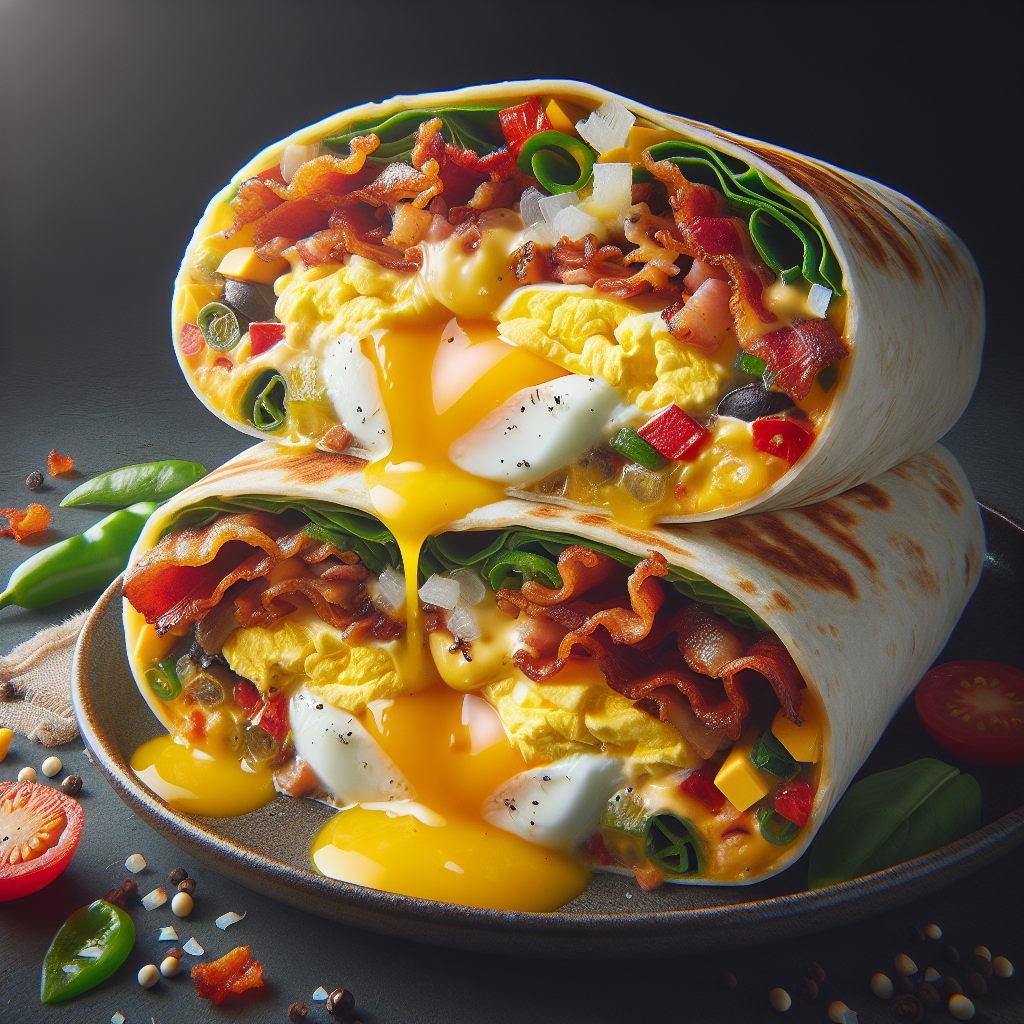
Start your day with a protein-packed breakfast burrito filled with scrambled eggs, lean meats like turkey or chicken, and a variety of colorful vegetables. Wrap them up in whole wheat tortillas or lettuce leaves for a nutritious and satisfying meal.
2. Quinoa and Chicken Power Bowls
Prepare power bowls by combining cooked quinoa, grilled chicken breast, roasted vegetables, and a sprinkle of your favorite herbs and spices. Divide them into individual containers for quick and easy grab-and-go lunches.
3. Salmon and Sweet Potato Foil Packets
Create foil packets filled with salmon fillets, sweet potato chunks, and a mix of your favorite veggies. Drizzle with olive oil, add some lemon slices, and season with salt, pepper, and herbs. Bake them in the oven and enjoy a flavorful and nutritious dinner option.
4. Lentil and Vegetable Curry
Cook up a big batch of lentil and vegetable curry using a variety of colorful vegetables like bell peppers, carrots, and spinach. Spice it up with your favorite curry paste or spices, and portion it for easy heat-and-eat meals throughout the week.
5. Homemade Protein Bars
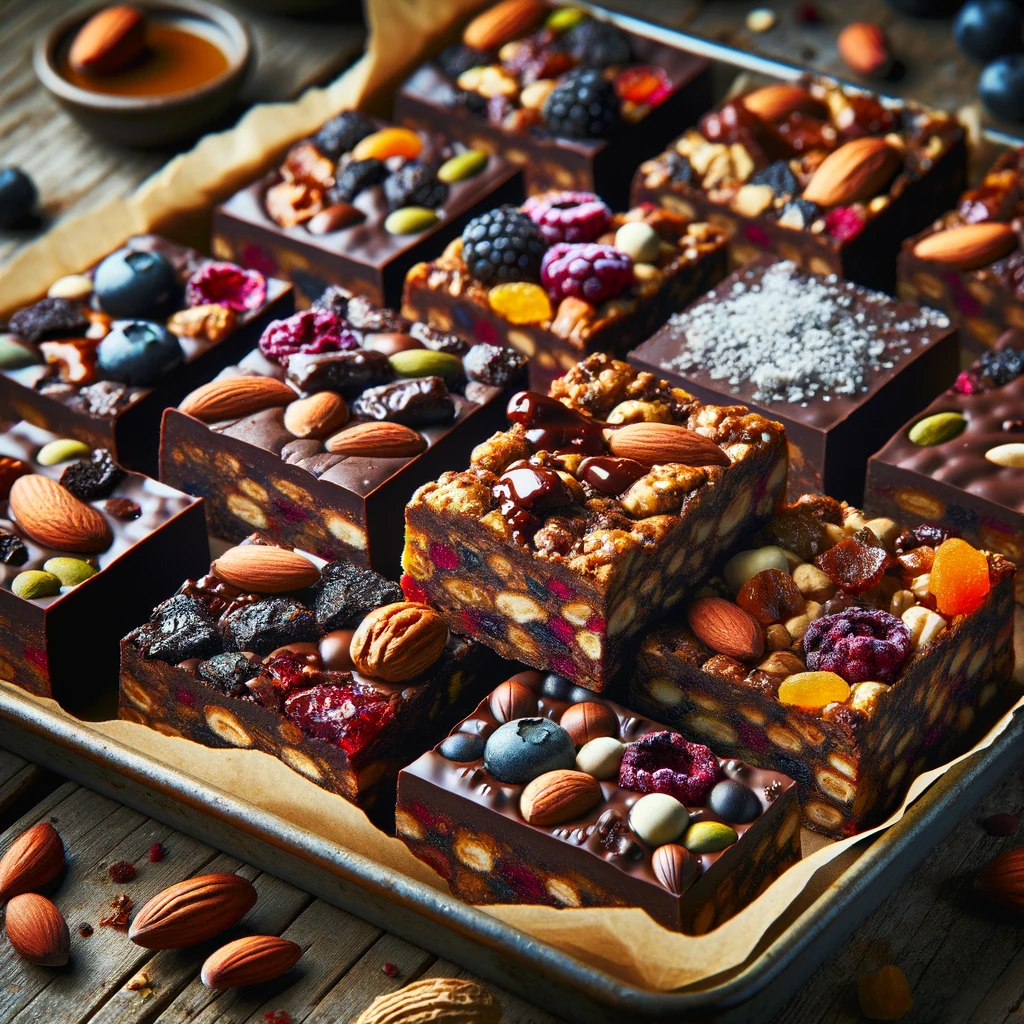
Prepare your own protein bars using a combination of oats, nut butter, protein powder, and other nutritious add-ins like dried fruits, nuts, or seeds. Cut them into individual servings and store them in the fridge or freezer for a convenient and protein-packed snack.
These easy meal prep ideas are just the beginning. Feel free to get creative and adapt them to your taste preferences and dietary needs. Remember, meal prep is all about making your weight gain journey easier and more enjoyable, so don’t be afraid to experiment and try new recipes.
| Meal Prep Recipe | Ingredients | Instructions |
|---|---|---|
| Protein-Packed Breakfast Burritos | Eggs, lean meat (turkey or chicken), vegetables, whole wheat tortillas or lettuce leaves | 1. Scramble eggs and cook lean meat 2. Chop vegetables 3. Fill tortillas or lettuce leaves with eggs, meat, and vegetables 4. Roll them up and secure with toothpicks 5. Store in individual containers |
| Quinoa and Chicken Power Bowls | Cooked quinoa, grilled chicken breast, roasted vegetables, herbs and spices | 1. Cook quinoa and grill chicken breast 2. Roast vegetables 3. Mix quinoa, chicken, and vegetables 4. Season with herbs and spices 5. Divide into individual containers |
| Salmon and Sweet Potato Foil Packets | Salmon fillets, sweet potato chunks, vegetables, olive oil, lemon slices, salt, pepper, herbs | 1. Preheat oven 2. Place salmon, sweet potatoes, and vegetables on foil 3. Drizzle with olive oil and add lemon slices 4. Season with salt, pepper, and herbs 5. Fold foil and bake in the oven 6. Store in individual containers |
| Lentil and Vegetable Curry | Lentils, vegetables, curry paste or spices | 1. Cook lentils 2. Chop vegetables 3. Sautee vegetables and add curry paste or spices 4. Mix lentils and vegetables 5. Portion into individual containers |
| Homemade Protein Bars | Oats, nut butter, protein powder, dried fruits, nuts or seeds | 1. Mix oats, nut butter, and protein powder 2. Add dried fruits, nuts, or seeds 3. Press the mixture into a pan 4. Refrigerate or freeze until firm 5. Cut into individual servings |
Bulking on a Budget: Meal Prep for Weight Gain
When it comes to meal prepping for weight gain, you may be concerned about the costs associated with buying all the necessary ingredients. However, with a little planning and strategizing, it is possible to bulk up on a budget without compromising on nutrition. In this section, I will share some valuable tips and strategies for meal prepping for weight gain on a budget.
Cost-Effective Ingredients for Bulking
To keep your meal prep budget-friendly, it’s important to focus on cost-effective ingredients that still provide the necessary nutrients for weight gain. Here are some budget-friendly options to consider:
- Beans and legumes: These are excellent sources of protein and fiber, and they can be bought in bulk at a lower cost.
- Oats: Oats are a great source of carbohydrates and can be purchased in large quantities for a lower price. They also make a delicious and filling breakfast option.
- Eggs: Eggs are not only packed with protein but are also an affordable food item that can be used in various recipes.
- Peanut butter: With its high calorie and healthy fat content, peanut butter is a cost-effective way to add flavor and calories to your meals.
- Frozen fruits and vegetables: Buying frozen fruits and vegetables is an economical choice as they often cost less than fresh produce while maintaining their nutrient content.
By incorporating these cost-effective ingredients into your meal prep, you can stay within your budget while still meeting your weight gain goals.
Budget-Friendly Meal Prep Strategies
In addition to choosing cost-effective ingredients, there are several budget-friendly meal prep strategies you can implement:
- Plan your meals: Take the time to plan your meals for the week, including snacks and sides. This will help you create a shopping list and avoid impulse purchases.
- Cook in bulk: Prepare larger quantities of food and store them in individual portions. This not only saves time but also reduces the cost per serving.
- Use versatile ingredients: Opt for ingredients that can be used in multiple recipes. For example, if you’re buying chicken, consider using it in different dishes throughout the week to minimize waste.
- Shop sales and discounts: Keep an eye out for sales and discounts on staple items. Stock up when prices are low to save money in the long run.
- Reuse leftovers: Don’t let leftover ingredients go to waste. Get creative and repurpose them into new meals to maximize your food budget.
By implementing these budget-friendly meal prep strategies, you can stretch your dollar while still enjoying nutritious and delicious meals that support your weight gain journey.
Now that you have learned how to meal prep for weight gain on a budget and discovered cost-effective ingredients and budget-friendly strategies, you are well-equipped to achieve your weight gain goals without breaking the bank.
Weekly Meal Prep Schedules to Support Muscle Growth
To effectively support muscle growth and achieve your weight gain goals, it is crucial to establish a consistent meal prep routine. By planning and preparing your meals in advance, you can ensure that you have a steady supply of nutritious food throughout the week. Below, I have provided sample meal prep schedules that can be followed to maximize muscle growth and support your weight gain journey.
“Proper nutrition is the cornerstone of muscle growth.”
– Arnold Schwarzenegger
Sample Weekly Meal Prep Schedule:
Below is an example of a weekly meal prep schedule that can help you fuel your workouts and support muscle growth:
| Day | Meal 1 – Breakfast | Meal 2 – Mid-Morning Snack | Meal 3 – Lunch | Meal 4 – Pre-Workout Snack | Meal 5 – Post-Workout Recovery | Meal 6 – Dinner |
|---|---|---|---|---|---|---|
| Monday | Protein Pancakes | Greek Yogurt with Berries | Grilled Chicken with Quinoa and Steamed Veggies | Protein Smoothie | Grilled Salmon with Sweet Potato and Broccoli | Lean Beef Stir-Fry with Brown Rice |
| Tuesday | Egg White Omelette with Spinach and Whole Wheat Toast | Protein Bar | Turkey Wrap with Avocado and Salad | Rice Cakes with Nut Butter | Lean Steak with Roasted Potatoes and Asparagus | Grilled Chicken with Quinoa and Mixed Greens Salad |
| Wednesday | Oatmeal with Protein Powder and Berries | Protein Shake | Salmon Salad with Brown Rice | Fruit Smoothie | Turkey Meatballs with Whole Wheat Pasta and Marinara Sauce | Grilled Fish with Couscous and Steamed Vegetables |
| Thursday | Protein Waffles with Fruit | Greek Yogurt with Granola | Grilled Chicken Wrap with Quinoa Salad | Trail Mix | Lean Beef with Sweet Potato Mash and Green Beans | Shrimp Stir-Fry with Brown Rice |
| Friday | Scrambled Eggs with Whole Wheat Toast | Cottage Cheese with Nuts and Fruit | Tuna Salad Sandwich with Sweet Potato Fries | Protein Smoothie | Grilled Chicken Breast with Roasted Vegetables and Quinoa | Lean Beef Tacos with Whole Grain Tortillas and Salsa |
Remember, this is just a sample meal prep schedule and can be customized to suit your personal preferences and dietary needs. Feel free to modify the meals and portion sizes based on your goals and food preferences.
High-Calorie Meal Prep Recipes for Bulking Up
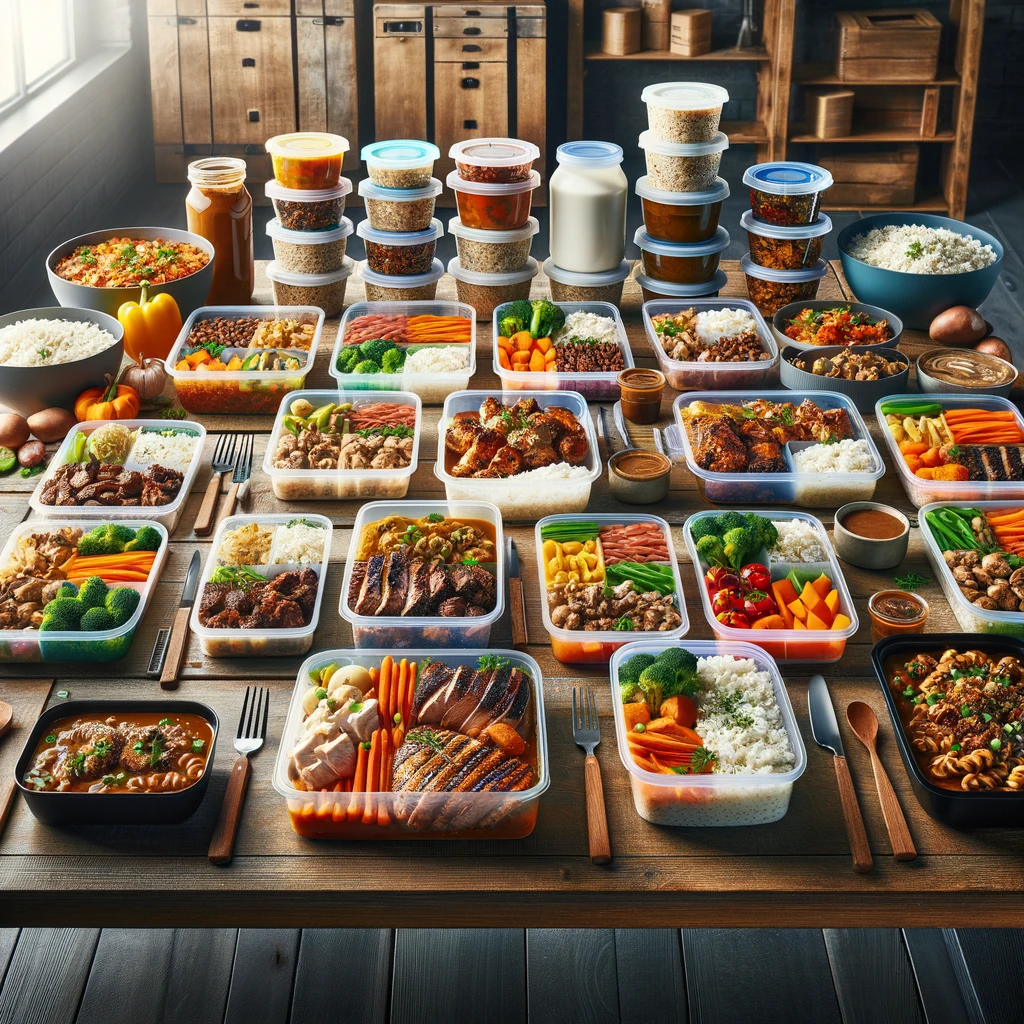
In this section, I will share high-calorie meal prep recipes specifically designed for weight gain. Whether you’re looking to pack on muscle or increase your overall calorie intake, these recipes will provide the nourishment you need to achieve your goals. From protein-packed breakfasts to hearty lunches and restorative dinners for muscle recovery, these recipes are delicious and easy to prepare.
Protein-Packed Breakfasts
Start your day off right with these protein-packed breakfast ideas:
- Egg and Veggie Muffins: Whip up a batch of these protein-rich muffins using eggs, vegetables, and a sprinkle of cheese. They can be made ahead and enjoyed throughout the week.
- Protein Pancakes: Swap out traditional pancakes for a protein-packed version made with Greek yogurt, oats, and your choice of protein powder. Top with fresh fruit for added flavor and nutrients.
- Breakfast Burritos: Load whole wheat tortillas with scrambled eggs, lean meats such as turkey or chicken, and veggies. Wrap them individually and refrigerate for a quick and satisfying breakfast option.
Hearty Lunches to Fuel Your Workouts
Stay energized and fueled throughout the day with these hearty lunch options:
- Chicken and Rice Bowls: Prepare a large batch of grilled chicken breast and brown rice at the beginning of the week. Mix and match with different veggies and sauces to create flavorful and filling lunch bowls.
- Beef Stir-Fry: Slice lean beef into strips and stir-fry with colorful vegetables and a savory sauce. Divide into meal prep containers with a side of quinoa or brown rice for a well-rounded lunch.
- Tuna Salad Wrap: Mix canned tuna with Greek yogurt, diced celery, and a squeeze of lemon juice. Spread the mixture onto whole wheat tortillas and add fresh greens for a nutritious and portable lunch option.
Here are some more meal-prep chicken recipes.
Restorative Dinners for Muscle Recovery
Support muscle recovery and growth with these restorative dinner recipes:
- Salmon with Quinoa and Roasted Vegetables: Bake salmon fillets and serve alongside a bed of quinoa and a variety of roasted vegetables. The omega-3 fatty acids in salmon promote muscle recovery and overall health.
- Lean Beef Chili: Prepare a batch of hearty beef chili using lean ground beef, kidney beans, tomatoes, and a blend of spices. Enjoy with a side of whole wheat bread or brown rice for a satisfying dinner.
- Veggie Stir-Fry with Tofu: Sauté an assortment of colorful vegetables with tofu and a flavorful sauce. Serve over brown rice or quinoa for a balanced vegetarian dinner option rich in protein and nutrients.
By incorporating these high-calorie meal prep recipes into your routine, you can ensure you’re getting the necessary nutrients to support your weight gain goals. Prepare them in advance to save time and stay on track with your nutrition. Enjoy these delicious meals and watch your progress soar!
Meal Prep for Lean Muscle Gain: Maximizing Nutrition
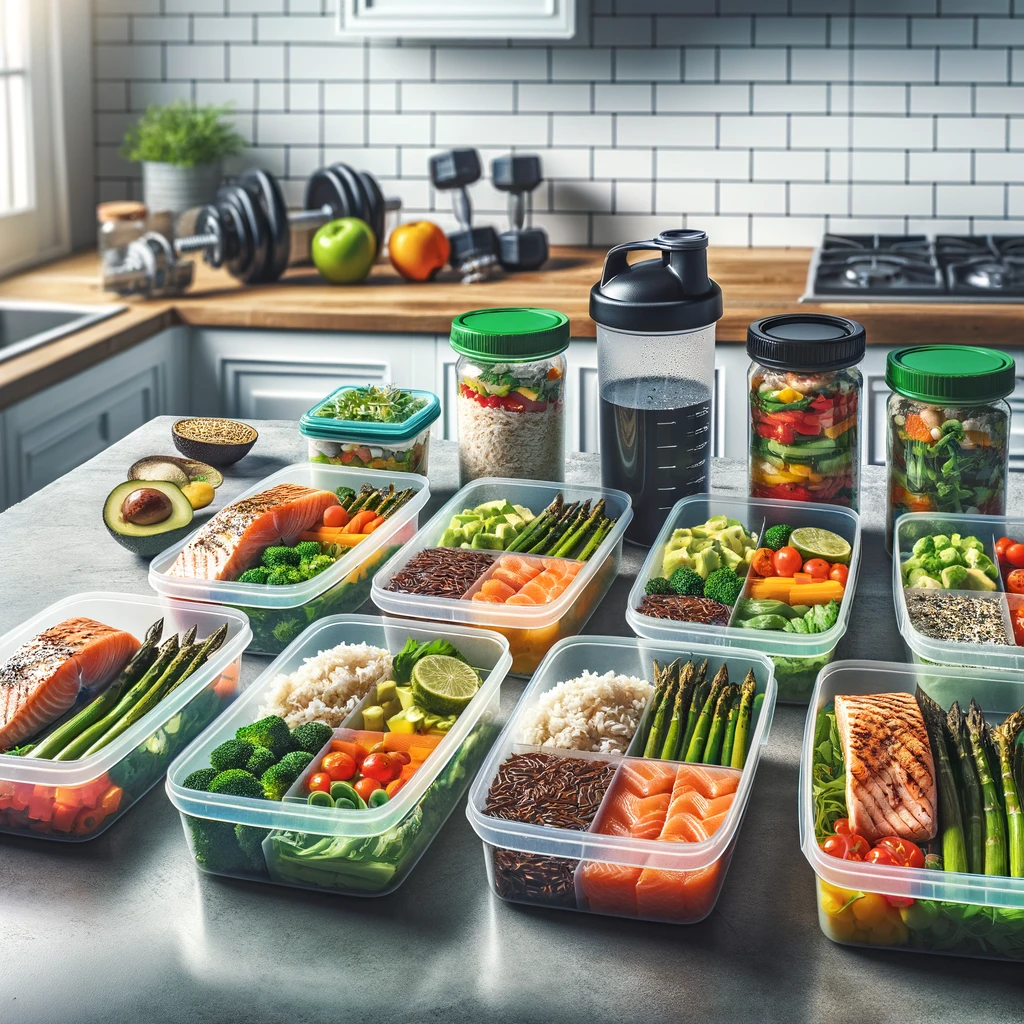
When it comes to achieving lean muscle gain, meal prep plays a crucial role in maximizing nutrition and supporting your fitness goals. By planning and preparing your meals in advance, you can ensure that you’re consuming the right balance of nutrients to fuel your workouts and promote muscle development while minimizing fat gain.
Here are some tips and ideas for meal prep strategies that will help you optimize your nutrition for lean muscle gain:
- Focus on high-quality protein: Protein is essential for muscle repair and growth. Include lean sources of protein such as chicken breast, turkey, fish, tofu, and Greek yogurt in your meal prep. These protein-rich options will provide the amino acids your muscles need to recover and grow.
- Incorporate complex carbs: Carbohydrates are the primary source of energy for your workouts. Opt for complex carbs such as quinoa, brown rice, sweet potatoes, and whole-grain bread to provide sustained energy and prevent blood sugar spikes. These carbs will fuel your workouts and support muscle recovery.
- Don’t forget healthy fats: Healthy fats are essential for hormone production and overall health. Include sources of healthy fats like avocados, nuts, seeds, and olive oil in your meal prep. These fats will provide the necessary nutrients for optimal muscle growth.
- Load up on fruits and vegetables: Fruits and vegetables are packed with vitamins, minerals, and antioxidants that support overall health and muscle recovery. Include a variety of colorful fruits and vegetables in your meals to ensure you’re getting a wide range of nutrients.
- Stay hydrated: Drinking enough water is vital for optimal performance and muscle recovery. Make sure to include plenty of water-rich foods in your meal prep, such as cucumbers, watermelon, and leafy greens. Additionally, carry a water bottle with you throughout the day to stay hydrated.
By following these meal prep strategies, you can ensure that your nutrition is optimized for lean muscle gain. Remember to listen to your body and adjust your meal plan as needed to meet your individual needs and goals. With consistent and thoughtful meal prep, you’ll be well on your way to achieving your desired physique.
“Meal prep is the key to maximizing nutrition for lean muscle gain. By planning and preparing your meals in advance, you can ensure that you’re fueling your body with the right nutrients to support muscle growth while minimizing fat gain.”
Tips and Tricks for Easier and Faster Meal Prep
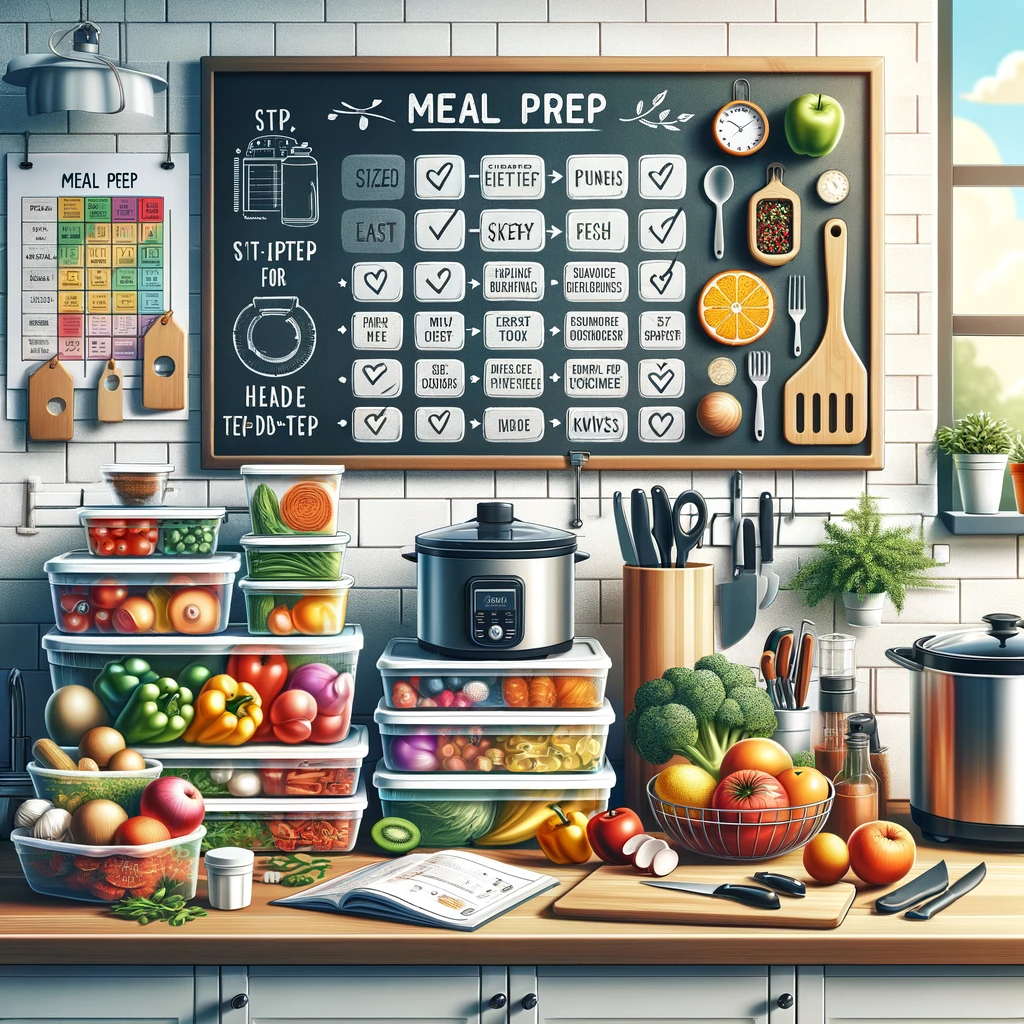
In this section, I will share some valuable tips and tricks to make your meal prep process easier and faster. Whether you have a busy schedule or simply want to streamline your meal preparation, these techniques will help you save time and effort in the kitchen.
Time-Saving Techniques for Busy Schedules
If you have a hectic lifestyle and struggle to find time for meal prep, these time-saving techniques will be a game-changer:
- Plan your meals in advance: Take a few minutes each week to plan your meals and create a shopping list. This will help you stay organized and avoid last-minute decisions.
- Choose recipes with minimal ingredients: Opt for recipes that require fewer ingredients and simpler cooking techniques. This will save you time both in the kitchen and at the grocery store.
- Prep ingredients ahead of time: Spend some time prepping ingredients in advance, such as chopping vegetables or marinating proteins. This will significantly reduce your cooking time when it comes to preparing your meals.
- Utilize kitchen tools and appliances: Invest in time-saving kitchen tools and appliances such as a food processor, slow cooker, or Instant Pot. These gadgets can help speed up the cooking process and free up your time.
- Utilize leftovers creatively: Repurpose leftovers creatively to create new meals. For example, use leftover grilled chicken in a salad or wrap for a quick and convenient lunch.
Meal Prepping in Batches: Cooking with Efficiency
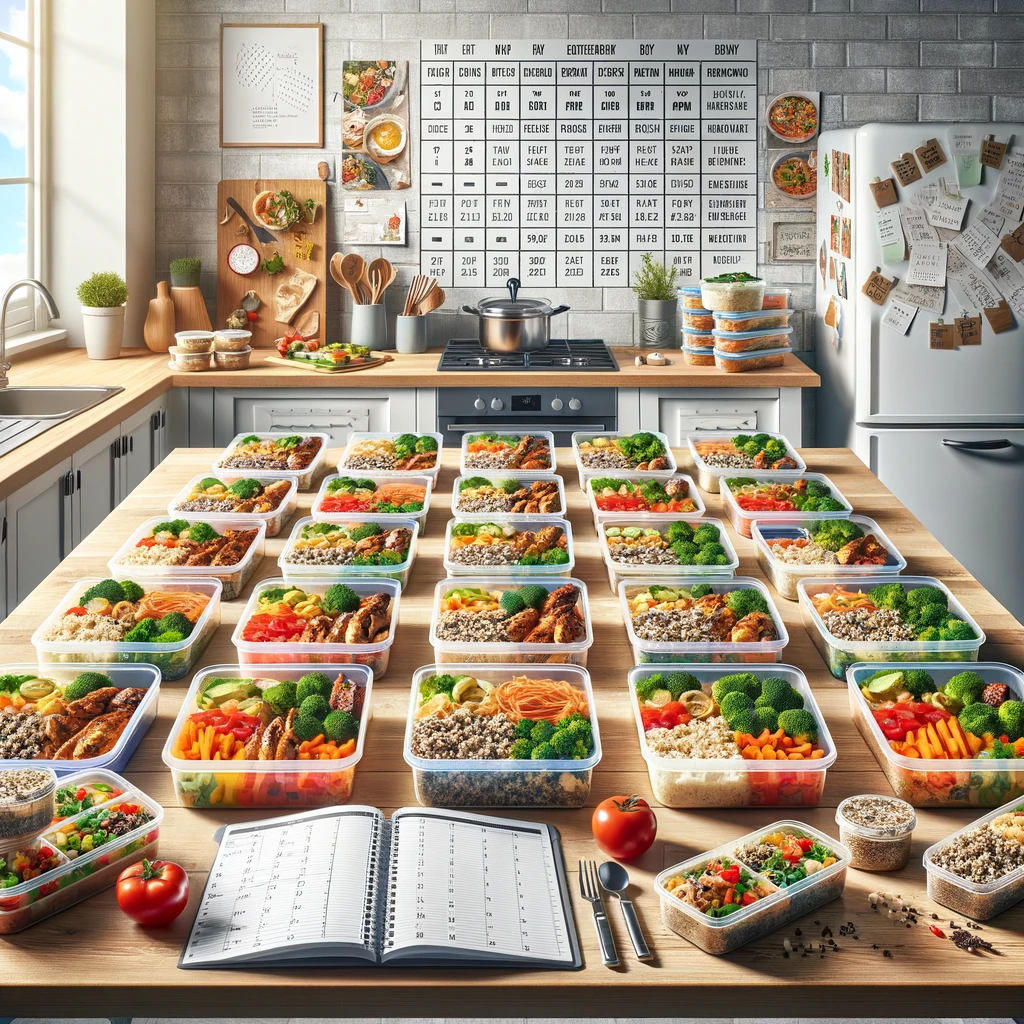
One of the most efficient ways to meal prep is by cooking in batches. This technique allows you to prepare multiple meals at once and save time throughout the week. Here’s how you can make the most of batch cooking:
- Choose recipes that can be easily scaled up: Look for recipes that can be easily doubled or tripled without sacrificing taste or quality. This way, you can cook larger quantities in one go.
- Invest in quality food storage containers: Use high-quality, airtight food storage containers to store your batch-cooked meals. This will help keep your food fresh and prevent spoilage.
- Label and organize your meals: Label your containers with the name of the dish and the date it was prepared. Organize them in your fridge or freezer according to the order in which you plan to consume them.
- Rotate your meal options: Prepare different meals each week to avoid monotony. This will make your meal prep more enjoyable and ensure a varied and balanced diet.
- Utilize the freezer: If you’re not planning to consume all the batch-cooked meals within a week, freeze them for later use. This will provide you with quick and convenient options for busy days.
By following these tips and tricks for easier and faster meal prep, you can streamline your cooking process and save valuable time. Whether you’re a busy professional or simply looking to simplify your meal preparation, these techniques will help you achieve efficiency and convenience in the kitchen.
Conclusion
In conclusion, meal prepping is a powerful strategy for gaining weight in a healthy and controlled manner. Throughout this article, I have explored the basics of weight gain and nutrition, discussed the importance of a caloric surplus and macronutrients, and provided guidance on customizing meal plans to support weight gain goals.
It is crucial to understand the balance of protein, carbs, and fats in your meals to optimize weight gain. By finding the right combination of macronutrients, you can ensure that your body has the necessary fuel to build muscle and support your weight gain journey.
Additionally, we have shared easy meal prep ideas that are not only delicious but also packed with the nutrients your body needs. From protein-packed breakfasts to restorative dinners, these recipes will help you stay on track with your weight gain goals without sacrificing taste or variety.
Remember, consistency is key when it comes to meal prepping for weight gain. By following the suggested weekly meal prep schedules and incorporating time-saving techniques, you can make meal prep a seamless part of your routine. Stay committed to your goals, and before you know it, you will see the progress you desire.
FAQ
Can meal prepping help with weight gain?
Yes, meal prepping can be an effective strategy for weight gain. By planning and preparing nutritious meals ahead of time, you can ensure you are consuming enough calories and nutrients to support your weight gain goals.
How does a caloric surplus contribute to weight gain?
A caloric surplus means consuming more calories than your body needs for maintenance. This surplus provides the extra energy your body needs to build muscle and gain weight. Without a caloric surplus, it can be challenging to see significant weight gain.
What role do macronutrients play in muscle gain?
Macronutrients, such as protein, carbohydrates, and fats, are essential for muscle gain. Protein provides the building blocks for muscle growth, while carbohydrates and fats provide the energy needed for intense workouts and overall body functions.
How do I calculate my daily caloric needs for weight gain?
To calculate your daily caloric needs for weight gain, you can use an online calculator that takes into account factors like your age, gender, weight, activity level, and weight gain goals. This will give you an estimate of how many calories you should consume each day.
How can I customize my meal plan based on my body type?
Body type can affect how your body responds to different macronutrient ratios. For example, ectomorphs may need more carbohydrates to support weight gain, while endomorphs may need to focus on portion control. It’s essential to listen to your body and make adjustments as needed.
How do I set realistic and achievable weight gain targets?
Setting realistic weight gain targets involves considering factors such as your current weight, body composition, and long-term goals. It’s important to aim for gradual weight gain to ensure it’s primarily lean mass rather than excessive fat gain.
What are the essential tools and equipment for meal prepping?
Some essential tools and equipment for meal prepping include meal prep containers, a good quality knife set, cutting boards, measuring cups and spoons, and cooking utensils. Having these items on hand will make the meal prepping process more efficient and convenient.
How can I stock up on the right ingredients for weight gain?
Stocking up on nutrient-dense foods like lean proteins, complex carbohydrates (such as brown rice and sweet potatoes), and healthy fats (such as avocados and nuts) will ensure you have the right ingredients to support weight gain. Consider buying in bulk or planning your meals around sales to save money.
What is the right balance of protein, carbs, and fats for weight gain?
The optimal macronutrient ratio for weight gain will vary depending on individual needs and preferences. However, a general guideline is to consume around 30-35% of your calories from protein, 40-45% from carbohydrates, and 20-25% from fats.
Are there any easy meal prep ideas for healthy weight gain?
Absolutely! Some easy meal prep ideas for healthy weight gain include overnight oats with protein powder and fruits for breakfast, chicken breast with brown rice and roasted vegetables for lunch, and salmon with quinoa and steamed broccoli for dinner.
How can I meal prep for weight gain on a budget?
Meal prepping for weight gain on a budget can be achieved by focusing on cost-effective ingredients like canned beans, frozen fruits and vegetables, chicken thighs, and eggs. Buying in bulk and planning your meals ahead can also help save money.
Are there any weekly meal prep schedules to support muscle growth?
Yes, having a weekly meal prep schedule can help ensure you meet your nutritional needs for muscle growth. You can plan and prepare your meals for the week in batches, portion them out into containers, and refrigerate or freeze them for easy access and convenience.
Do you have high-calorie meal prep recipes specifically for weight gain?
Yes! Some high-calorie meal prep recipes for weight gain include protein-packed breakfasts like egg and vegetable frittatas, hearty lunches like turkey chili with quinoa, and restorative dinners like grilled steak with sweet potato mash and roasted asparagus.
How can I maximize nutrition in my meal prep for lean muscle gain?
To maximize nutrition in your meal prep for lean muscle gain, focus on incorporating nutrient-dense foods like lean proteins, whole grains, fruits, vegetables, and healthy fats. Avoid excessive processed foods and ensure you are consuming a variety of macronutrients and micronutrients.
Any tips and tricks for easier and faster meal prep?
Absolutely! Some tips and tricks for easier and faster meal prep include planning your meals in advance, prepping ingredients in batches, using slow cookers or Instant Pots for hands-off cooking, and utilizing time-saving tools like food processors or blenders.
Source Links
- https://fitmencook.com/blog/meal-prep-for-weight-gain/
- https://blog.hungryroot.com/post/meal-planning-ultimate-meal-prep-for-weight-gain-ideas-recipes
- https://www.trifectanutrition.com/blog/meal-prep-for-weight-gain-your-complete-muscle-building-diet-plan
Jim Lopez, the founder and editor of The Meal Prep Ninja, shares his journey from a passionate bodybuilder and fitness enthusiast to a certified nutrition coach. Certified by Precision Nutrition, Jim aims to empower others with knowledge on meal prep and nutrition, offering resources for busy individuals to enjoy low-calorie, tasty foods. His blog is a community for sharing healthy eating habits and meal prep recipes
